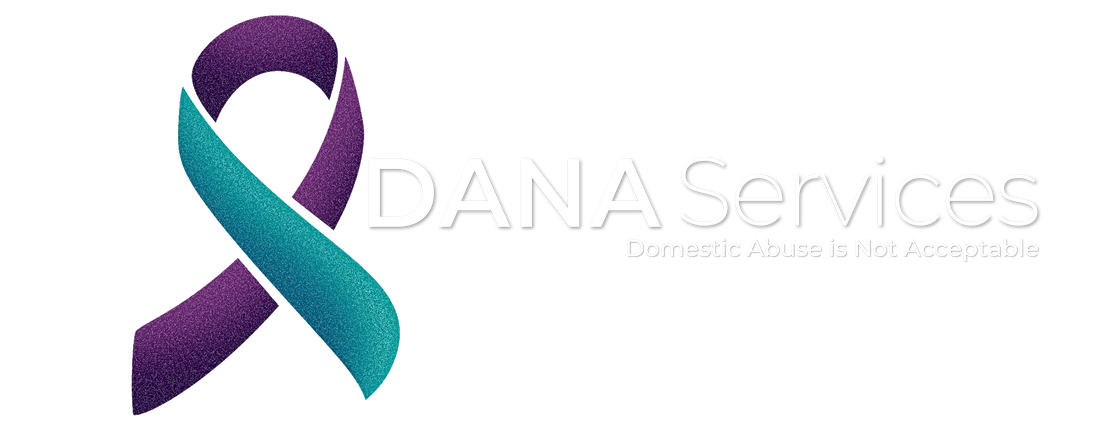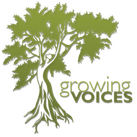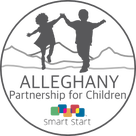DANA Services of NC
(336) 372-3462
Sparta & North Wilkesboro, North Carolina
Available 24/7
ELDER ABUSE
Includes physical, emotional, and verbal abuse, threats, misuse or withholding of money, neglect, or violation of privacy and basic rights. Elder abuse is often committed by a relative or caregiver. If you suspect elder abuse contact the department of social services.
The effects of elder abuse affect the quality of life of those who suffer from it and it has been found that they live shorter lives compared to those who do not suffer from elder abuse. Elder abuse happens in different ways, although they all have devastating effects on those who suffer from it.
ELDER PHYSICAL ABUSE
It includes any type of bodily injury caused to an elder. Abusers are often relatives of the victim but may also include caregivers. Signs of elder abuse include (but are not limited to) unexplained bruising, cigarette burns, dislocations, broken bones, abrasion marks that resemble strap marks, unexplained injuries, internal injuries, recent hospitalizations, bringing the victim to different emergency rooms to keep the abuse from being detected.
ELDER SEXUAL ABUSE
It is any king of non-consensual sexual contact with an elder. Females are more likely to be victims but males also may suffer sexual abuse. The abuse often comes from nursing home employees, caregivers, and even relatives. Signs of sexual abuse include bruising of thighs or genital area, unexplained genital or anal bleeding or irritation, unexplained STDs, problems sitting or walking, and torn or bloody underwear.
ELDER FINANCIAL ABUSE
It involves using an elder's financial resources without their consent or by coercion. Some abusers will get the victim to sign checks and important documents where he/she appears as the beneficiary, will steal from the victim, forge their signature, etc. Those who are at greater risk to become victims of financial abuse are elders who are alone or isolated, who do not know how to check the balance on their bank accounts and have to rely on others to do it for them, those who suffer from several disabilities, those with unemployed relatives, and elders who are unaware of exactly how much their assets are worth. Signs of elder financial abuse include withdrawals from their bank accounts they could have not done, odd charges to their debit/credit cards, unpaid bills, missing property, and legal documents signed by the elder but that they do not understand.
ELDER EMOTIONAL ABUSE
Emotional abuse is often more difficult to detect since it leaves no physical signs or evidence. However, it is one of the most damaging forms of abuse since it destroys the hopes in life of an elder who may already be dealing with psychological issues brought on by physical disease or the changes in lifestyle they are going through. The abusers are often caregivers, relatives, and those who are required to spend more time with the elder. Threats, body gestures, and humiliation are ways in which emotional abuse is inflicted upon the elder. Signs of elder abuse include sudden weight loss or gain, loss of appetite, sleeplessness, stress-related disorders, fear of the abuser, depression, confusion, social isolation of the victim by the abuser, and sometimes, the display of age-inappropriate behavior.
ELDER NEGLECT
Neglect occurs when an elder is not properly taken care of. There are three types of neglect seen in elders: self-neglect which occurs when the elder is unable to adequately take care of themselves; active neglect which is when a caregiver prevents an elder from accessing the most basic necessities which can range from personal care to medical care; and passive neglect which occurs when the caregiver becomes unable to care for the elder due to sickness or disability.
The neglect usually comes from caregivers, whether related or not to the elder. Elders with mental of physical disabilities are more likely to suffer from neglect since they require greater care and time from the caregiver. Sometimes the caregiver is not properly trained to care for an elder, leading to neglect and endangerment the victim's safety and well-being. In severe cases, the neglect is so severe that the elder may be living in unsanitary conditions that pose a risk to their health. Signs of elder neglect include poor personal hygiene, skin rashes, dehydration, inappropriate clothing for the season of the year, bedsores, untreated mental or medical conditions, worsened medical conditions that have been treated by a doctor, worsening dementia, and isolation of the victim from the caregiver.
ELDER DOMESTIC ABUSE
Domestic abuse of an elder may have initiated earlier in life or later on when lifestyle changes set in due to age. Most are females who are victims of their own partners. Domestic abuse is often about the abusive partner trying to control the victim. It consists of emotional, physical, financial, and sometimes even sexual abuse. The abuse may start as put-downs and escalate to physical abuse. Rarely domestic abuse stops, instead it worsens and may reach the point where the victim's life is in danger. Signs of domestic abuse are very similar to signs of other types of abuse, but one of them is that the abuser does not allow the victim to talk for herself at social gatherings or even medical appointments, instead, questions directed to the victim will be answered by the abuser in fear that something will be said and raise a red flag about the abuse.
Includes physical, emotional, and verbal abuse, threats, misuse or withholding of money, neglect, or violation of privacy and basic rights. Elder abuse is often committed by a relative or caregiver. If you suspect elder abuse contact the department of social services.
The effects of elder abuse affect the quality of life of those who suffer from it and it has been found that they live shorter lives compared to those who do not suffer from elder abuse. Elder abuse happens in different ways, although they all have devastating effects on those who suffer from it.
ELDER PHYSICAL ABUSE
It includes any type of bodily injury caused to an elder. Abusers are often relatives of the victim but may also include caregivers. Signs of elder abuse include (but are not limited to) unexplained bruising, cigarette burns, dislocations, broken bones, abrasion marks that resemble strap marks, unexplained injuries, internal injuries, recent hospitalizations, bringing the victim to different emergency rooms to keep the abuse from being detected.
ELDER SEXUAL ABUSE
It is any king of non-consensual sexual contact with an elder. Females are more likely to be victims but males also may suffer sexual abuse. The abuse often comes from nursing home employees, caregivers, and even relatives. Signs of sexual abuse include bruising of thighs or genital area, unexplained genital or anal bleeding or irritation, unexplained STDs, problems sitting or walking, and torn or bloody underwear.
ELDER FINANCIAL ABUSE
It involves using an elder's financial resources without their consent or by coercion. Some abusers will get the victim to sign checks and important documents where he/she appears as the beneficiary, will steal from the victim, forge their signature, etc. Those who are at greater risk to become victims of financial abuse are elders who are alone or isolated, who do not know how to check the balance on their bank accounts and have to rely on others to do it for them, those who suffer from several disabilities, those with unemployed relatives, and elders who are unaware of exactly how much their assets are worth. Signs of elder financial abuse include withdrawals from their bank accounts they could have not done, odd charges to their debit/credit cards, unpaid bills, missing property, and legal documents signed by the elder but that they do not understand.
ELDER EMOTIONAL ABUSE
Emotional abuse is often more difficult to detect since it leaves no physical signs or evidence. However, it is one of the most damaging forms of abuse since it destroys the hopes in life of an elder who may already be dealing with psychological issues brought on by physical disease or the changes in lifestyle they are going through. The abusers are often caregivers, relatives, and those who are required to spend more time with the elder. Threats, body gestures, and humiliation are ways in which emotional abuse is inflicted upon the elder. Signs of elder abuse include sudden weight loss or gain, loss of appetite, sleeplessness, stress-related disorders, fear of the abuser, depression, confusion, social isolation of the victim by the abuser, and sometimes, the display of age-inappropriate behavior.
ELDER NEGLECT
Neglect occurs when an elder is not properly taken care of. There are three types of neglect seen in elders: self-neglect which occurs when the elder is unable to adequately take care of themselves; active neglect which is when a caregiver prevents an elder from accessing the most basic necessities which can range from personal care to medical care; and passive neglect which occurs when the caregiver becomes unable to care for the elder due to sickness or disability.
The neglect usually comes from caregivers, whether related or not to the elder. Elders with mental of physical disabilities are more likely to suffer from neglect since they require greater care and time from the caregiver. Sometimes the caregiver is not properly trained to care for an elder, leading to neglect and endangerment the victim's safety and well-being. In severe cases, the neglect is so severe that the elder may be living in unsanitary conditions that pose a risk to their health. Signs of elder neglect include poor personal hygiene, skin rashes, dehydration, inappropriate clothing for the season of the year, bedsores, untreated mental or medical conditions, worsened medical conditions that have been treated by a doctor, worsening dementia, and isolation of the victim from the caregiver.
ELDER DOMESTIC ABUSE
Domestic abuse of an elder may have initiated earlier in life or later on when lifestyle changes set in due to age. Most are females who are victims of their own partners. Domestic abuse is often about the abusive partner trying to control the victim. It consists of emotional, physical, financial, and sometimes even sexual abuse. The abuse may start as put-downs and escalate to physical abuse. Rarely domestic abuse stops, instead it worsens and may reach the point where the victim's life is in danger. Signs of domestic abuse are very similar to signs of other types of abuse, but one of them is that the abuser does not allow the victim to talk for herself at social gatherings or even medical appointments, instead, questions directed to the victim will be answered by the abuser in fear that something will be said and raise a red flag about the abuse.
|
|
Copyright © 1999-2024 DANA Services | www.danaservices.org | (336) 372-3462 | dana@danaservices.org |
PO Box 1643 Sparta, NC 28675 | All Rights Reserved Important Information: All text, images, logos, content, design and coding of this website is protected by all applicable copyright and trademark laws. No reproduction, distribution, or screenshots, prints, etc or transmission of any content on this web site is permitted without the written permission of DANA Services & Alleghany Partnership for Children. E-mail: [email protected]
|










